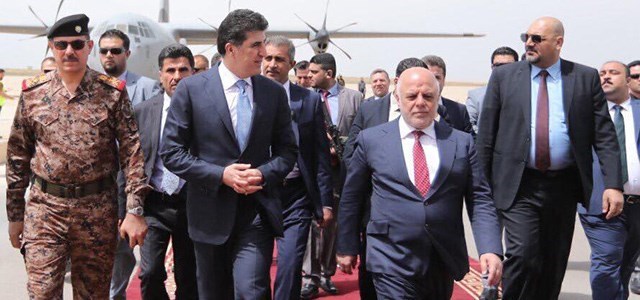Mohammed Ahmad, a taxi driver in the Iraqi Kurdish city of Sulaymaniyah, is happy to give his opinion on the upcoming elections. the events of the past four years in Iraqi Kurdistan have convinced the 32-year-old that he should not vote for anyone, now or in the future.
“I don’t see anything good can come out of the government and I don’t see anything positive about any of the parties whether they are Islamic, left wing, right wing or secular,” says the local who has been working as a taxi driver for the past six years. “I don’t trust any of them.”
Mohammed is not alone in the semi-autonomous, northern region. On May 12, Kurdish locals will vote in the country’s federal elections. And right now the citizens here appear to be divided and not even between the parties. Rather they can be divided into a group that has lost hope and will probably not vote and the group that still has some optimism and plans to participate.
According to the Shams network, which was established in 2004 and includes 113 Iraqi NGOs from all over the country to monitor elections, about 60 percent of Iraqi citizens participated in the last federal elections. However this year it expects a lower turnout – with only 50 percent of eligible voters in Iraqi Kurdistan to go to the polls.
There are 503 candidates from 25 different political groups in Iraqi Kurdistan competing for 46 seats in Baghdad. But it seems that a lot of the over 3.1 million eligible voters might stay home.
Things are not looking good for participation in the elections for several reasons, Hokaw Jato, the head of the Shams Network, explained. Firstly there’s been no real improvement in locals’ situations and there appears to be no new parties that could change that radically, Jato told NIQASH. Secondly, previous election promises have hardly been kept and thirdly, nobody has much faith in the authorities to prevent voter fraud. The government says it is using new methods, such as the biometric identification cards for voters, but even if it does work, locals don’t have much faith in it.
Jato says that one of the most important groups of voters now in Iraqi Kurdistan are those who want to vote but who are undecided as yet who to vote for. There’s a lot of these people and their ballots will be decisive, he suggests.
Simply asking around on the streets of Iraqi Kurdistan and that impression is confirmed. Mahdi Mohammed, 39, fixes cars for a living. He acknowledges that various crises in the region have had an impact on him but also that he doesn’t think it much matters who he votes for. “I know that whoever wins, the lives of my colleagues and myself won’t change a lot,” he told NIQASH, as he opened the bonnet of a customer’s car. “But I still prefer to vote. I think it is important to maintain this.”
“I have yet to see any party worthy of my vote,” says Soror Omar, a teacher. “But I am not into boycotting the election. I think that would only serve the interests of the established parties. But still, I have not seen any group I really want to vote for.”
Omar had a long list of grievances, saying the parties previously in opposition did not fulfil their promises or engaged in underhanded politics. “Nobody holds anybody accountable,” he complained.
Meanwhile Kanaan Sabr, a 39-year-old who sells remote controls in Sulaymaniyah’s main market, says he only knows one thing: he’s from Kirkuk and he will go back there to vote, as he has done in every election.
Kirkuk is one of Iraq’s so-called disputed territories, in which Iraqi Arabs and Iraqi Kurds are jostling for political power and control. Sabr says he will be voting for a Kurdish politician and party although he isn’t sure yet. “the Arabs vote for their parties so we should vote for ours. The last four years of crises have affected my life,” he concedes. ‘but I will go and vote for the Kurds.”
Meanwhile taxi driver, Mohammed Ahmad, is back on the streets. He’s always on the road and sees all the posters and campaign events in action. And, despite voter apathy, he says a lot of his passengers still want to talk about the elections.
“Some say they will vote, others say they won’t,” he concludes. “All I know is that I am not going to bother.”

